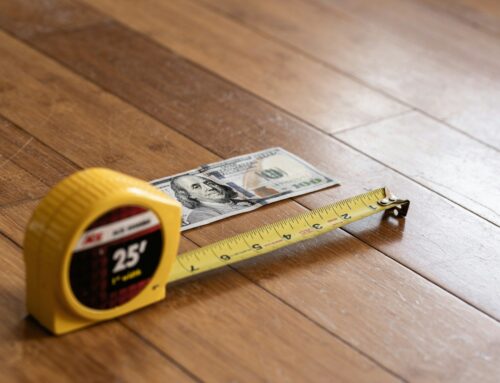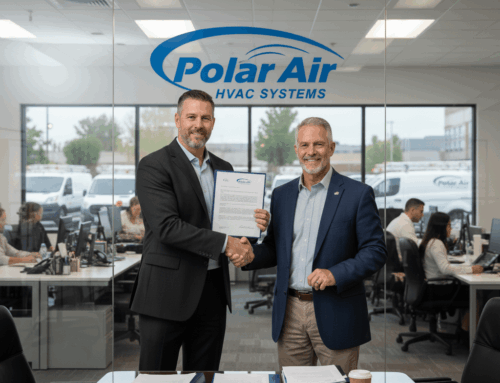You’ve heard of home court advantage, where a sports team holds the upper hand when playing in their home court because it’s familiar to them, but have you heard of the HVAC broker advantage?
This is where buying or selling an HVAC business is significantly easier because you choose to hire a broker to walk you through each step and handle the tasks of a business sale that, to you, are utterly confusing but, to them, are just the tasks of another Monday.
Working with an HVAC broker is a game changer, from valuing your business to helping you clean your books and market your business to their network of potential buyers. If you’re considering buying or selling an HVAC business, seek a broker to make the sale as quick, easy, and lucrative as possible.
The Role of an HVAC Broker
An HVAC broker specializes in facilitating the buying and selling of HVAC companies. They act as an intermediary between buyers and sellers, guiding both parties through the complex process of transferring ownership. The responsibilities of an HVAC business broker typically include:
HVAC Company Valuation
An experienced broker helps determine your HVAC company’s accurate valuation based on industry trends, market conditions, assets, revenue, and profit.
Marketing
A massive perk of having a broker is their expertise in marketing within the HVAC industry and their access to their network of potential buyers.
Buyer Screening
An exceptional broker will know how to identify qualified buyers with the financial capacity, experience, and genuine interest in HVAC business ownership.
Negotiations
Another huge selling point for hiring a broker is their expertise in facilitating negotiations between the buyer and seller to reach a fair agreement on terms and price.
Due Diligence
Your broker will handle and guide you through the due diligence process, ensuring all necessary financial, legal, and operational information is disclosed and reviewed.
Closing the Deal
Your trusted broker will ultimately guide you through the buying or selling process and its final stages, which include drafting and reviewing contracts and coordinating with accountants, lawyers, and other professionals to ensure a smooth ownership transition.
Overall, an HVAC business broker simplifies the complexities of buying and selling a business and helps you achieve the most favorable post-transaction outcomes.
The Value of Their Network
Finding the right buyer or seller is half the battle when buying or selling an HVAC business. Anyone heavily immersed in a given industry will have vast connections within it. HVAC businesses are their bread and butter, and HVAC brokers have relationships with a pool of potential buyers and sellers.
That network is highly beneficial and gives you an advantage over others selling or buying without a broker. Their network includes strategic buyers and sellers, equity firms, and other brokers. Your broker also has nuanced experience in marketing an HVAC business, which may consist of trade publication ads, social media marketing, word of mouth, online directories, and more.
The Cost of a Broker
The cost of a broker can vary significantly based on circumstances. This is because a broker usually receives between 4-11% of the sale price. Various factors affect the exact amount, such as the business size and the transaction’s brevity. A smaller, quicker transaction could mean a lower percentage, for example.
Every brokerage structures its fees differently, but your broker could charge a cost upfront to cover marketing. Ask what their specific fees are–a trustworthy broker will give it to you straight.
Negotiations Expertise
An experienced HVAC broker is also a skilled negotiator, which is handy when negotiating terms. They know how to negotiate the following (and more) professionally:
- A Non-Compete Clause: This agreement restricts competition between the buyer and seller post-sale.
- An Earn Out Provision: This contract enables the buyer to make a lower upfront payment, with the remaining balance to be paid over time based on the business’s performance.
- Due Diligence: This is a detailed legal investigation and analysis of a company as a step in the purchase process before the sale is finalized. The purpose is to help buyers assess the potential benefits and risks of the transaction. Due diligence is there to protect buyers. There’s sell-side due diligence, financial due diligence, environmental due diligence, operational due diligence, tax due diligence, and contractual due diligence.
Bottom Line
Is it possible to sell your HVAC business without a broker? Yes. But that is also dependent on your knowledge and experience. If you’ve never sold a business before, an HVAC broker will make your life easier and take stress off your shoulders as you walk face-first into the complexities of an HVAC sale.
A reputable broker will help you value your business and walk you through the selling process, including tax implications. If you don’t know what you’re doing or where to start in the selling process, let a broker swoop in and save the day.
Video
Infographic
An HVAC broker facilitates the buying and selling of HVAC companies, acting as an intermediary to assist both parties in the ownership transfer process. Learn more about their typical responsibilities in this infographic.









